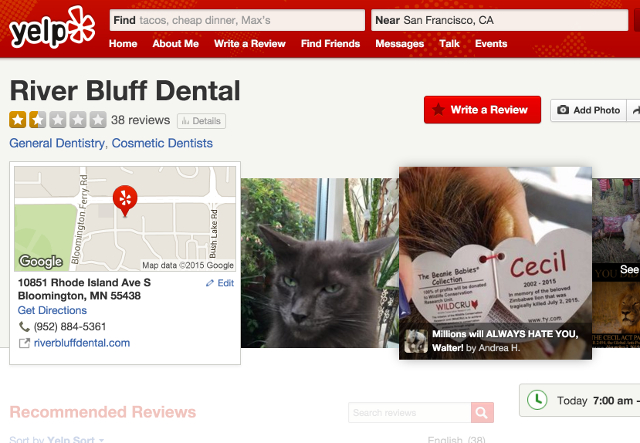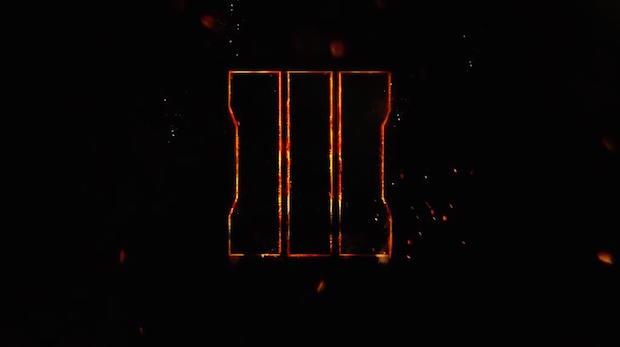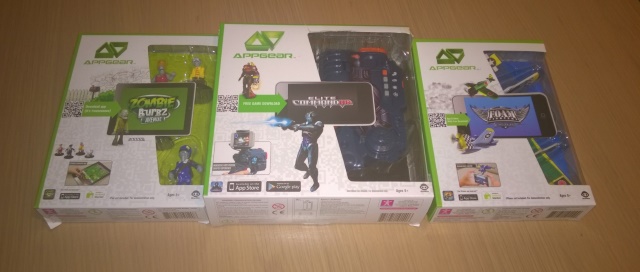


Tradition within the gaming press demands that Saint Patrick’s Day is celebrated on a wafer-thin pretence. Typically speaking, this practice ranges from slightly tenable lists of Irish characters to the crass conjunction of anything alcohol-related as relevant to the culture. But sure, so long as they’re enjoyable it’s taken as all in good fun.
This year, however, I’ve decided to go with something different. Recently I have had the good fortune to be accepted onto a Dublin-based game development course run by Pulse College. Here, on a weekly basis as lecturers and tutors, or simply through occupying the same spaces, I come into contact with all sorts of people active within the Irish videogames industry.
Finding myself in something of a rare position, and in keeping with the spirit of Saint Patrick, I spoke with three experienced individuals in order to share their insights into the domestic industry. So if you’ve ever wondered how the games industry is shaping up in the land of saints and scholars, what challenges are faced by Irish game developers, or if you’re simply interested in what Ireland has to offer, today is your lucky day.
--
Ed McElroy, CEO of Brighthead Games.
>How long has Brighthead Games been around?
Ed: We set up I think maybe June or July but I met the guys last year around January, we got together at game jams. We kept meeting each other at events and working together. We won a couple of things, we won Darklight and we did well at Gamecraft, so we decided to form a company.
My background is I did a lot of gamification of toys for when I was in college. I designed stuff for kids with arthritis. I designed a baby matt that would sort of use simple game mechanics of following the light that would represent what kids were doing. Juvenile arthritis is something that’s really, really interesting because it’s actually quite common. A surprising number of kids have juvenile arthritis and it’s never been catered for, not that I’ve ever seen, because most people think arthritis is an older people thing.
We were watching videos of toddlers and babies who have arthritis and actually have problems moving their muscles. So what I did was I took the exercises from what they were doing in Temple Street Children’s Hospital and put that into a game. It was like a baby’s mat where they could run around and represent animals, so they had to act like an elephant or a giraffe or a monkey. This physical exercise was helpful since when you have arthritis you have to move quite a lot, you have to keep yourself moving and get heat into your body, so the mat was also heated.
So that was my personal background, that’s how I got into that area. I always enjoyed games and I had already done an internship with Redwind Software. I did a little bit of game design with them. So when I met up with the guys we had the original idea of looking into educational games. The first version of Brighthead was this kind of educational games company. I personally was naive, I was business naive. I wasn’t really looking at where revenue would be coming from or how we were going to make money off it.
>You had a noble idea in mind.
Yeah, and it caught me out. Something like that would never have got funding at the time, I know now. I learned the hard way. I have an industrial design degree, not a business degree, so I had to learn the hard way about business plans, revenue streams, even setting up the business, stuff like that.
So that’s where we got to. From there, we found our way to trying to develop branded games. We thought that would be a cool area to work in, as well as developing our own titles. One of the games we developed for one of the game jams was, like, you had this wee gun that you could shoot platforms so you could jump from platform to platform but you could shoot the next platform. It was basically like Minecraft but on a 2D level like Mario. So that became The Adventures of King Croc which was released there around Christmas. And that was our first game. We just wanted to create a game and, again, not really knowing what we were doing, we just thought we’d just make it and see what happens. So we made the game in four months...
>It was not very successful?
Well, financially it was not very successful. It got four or five stars across the board in the indie game stores, but because we didn’t have the money for marketing it hasn’t reaming in the cash. We sort of had to change what we were doing. We are constantly in contact with creative agencies but projects that would keep a company afloat don’t come easily.
>It’s just yourself and two other people. If you exclude large foreign companies like Zynga and BioWare, would small companies like Brighthead make up the majority of the Irish games industry, as it were?
Yeah I think we’re all very small teams. I think Digit is probably the biggest. I know Redwind are up to a team of maybe ten or 11 or 12 at this stage and they’re growing. They got out early in the iOS store and they started building themselves up as an iOS developer. They started work there now on a global scale doing artwork for brands. They do develop their own titles but they’re more about getting brand work, and that’s how they’re able to expand.
>Why would you suppose the Irish industry is so small considering it’s largely a global market with digital distribution being so prolific? You’d think it wouldn’t terribly impede Irish companies.
The gaming industry is a strange one. We do have Irish people working in the area but they always went to work in the states, with Silicon Valley being kind of a nice place. Like other European countries, with Ireland we’re a little bit behind with the programming side. We’re a highly educated country but I think we’re a lot less inclined to make a big push. But they were making Atari games back in the day in Ireland. There’s always been people dipping in, dipping out. I guess Havok would be an example of an Irish company that made it big. Havok and Demonware might be the most prolific Irish influences on the games industry.
Brighthead’s first game The Adventures of King Croc is available for purchase on IndieCity and Indievania.
--
Naomi Moore, CEO/Director of Windmill Lane Recording Studios and Pulse College.
>What is it about the game industry that Pulse College is most passionate about?
Naomi: Coming from Windmill Lane Recording Studios and from an audio background, audio was always our passion. But then we started doing quite a lot of audio for gaming and realised that the games industry was going to start to really grow in Ireland.
>What year would that have been?
3 years ago. It’s only 3 years that we started doing gaming. So our first cohort of students when we started teaching game development, of our first batch of students 96% of them got work at the end of it. The second year it was the same – actually it was 94%, it dropped slightly – and now this year they’ve also been pegged quite a lot for work.
So the game industry in Ireland is growing but it’s really new, you know, it’s really nurture-y. There still needs to be a whole community built up. Now the community is building quite well – it’s building itself very well. What I like about the gaming industry is there’s this huge feeling of camaraderie between all the gamers because they have to be, they have to share knowledge, they have to get to know each other, otherwise we won’t grow. So it’s great to be at the beginning, at the burgeoning of something really new and exciting.
>If the Irish market has only picked up in the past three years, you wouldn’t be afraid it’s going somewhere bad with regards to the recession? Considering Game and HMV have very recently closed, is that going to affect our future in the industry?
No, employment in the game industry has gone up 91% in the last four years. It’s the biggest growth area – it’s the only growth area I suppose in Ireland. There’s a huge, huge amount of jobs out there. At the moment, I found 1,800 jobs online last week in Ireland, so there’s a massive, massive market out there but it’s really hard to fill those positions with Irish people because colleges aren’t teaching what they need to fill that skill gap.
All colleges except ours, of course, because we developed our courses in conjunction with the industry. We’re constantly talking to people like Riot Games and Digit Games and all those people to see what they need to fill that skill gap. And that’s the course that we’ve designed for this Momentum [state-sponsored] project. There are 90 on this course, already I’ve got about 40 odd placements and it’s only a month into the course. By the time the work placements start to happen hopefully I’d have a huge amount more work available.
>What’s the competition like for Pulse College? You mentioned other colleges don’t really direct people to be workers within the game industry.
I think that third level education finds it hard to keep up with the changes of the industries, just purely because of bureaucracy. They have processes that they need to go through. But from our point of view, because we’re a private course, the downside is that you have to pay for it but the upside is we can adapt new technologies immediately. So we change our courses every year to meet the demands of the skills. I think that’s the difference between ourselves and other third level institutions.
Plus, then, the ways we’re doing courses now, putting the game development with project management, making them all grow together, then splitting you and getting the management guys to come back and lead the creative teams – that’s very innovative. No other college really does that. That will produce really work-ready teams when they leave here. And I would suspect that quite a few companies are going to grow out of this company and we can incubate them here, that’s the whole plan. We have Powwow Games and Bitsmith and Batcat Games and a few others here. They’re not our students but we’re incubating them here, we’re proving that space. My idea is that, at the end of this course here, we have more incubation space downstairs to keep you on for a year or so and let you develop your games and raise funding for you.
>So this will essentially become one giant hub for the game industry where all the little companies are working together?
Exactly, that’s my plan!
>That’s brilliant.
Yeah, and it’s to develop more and more. And because the industry is developing all the time, we’re developing with it, it’s really exciting. It literally changes every day. And the more opportunities that are coming up means we embrace them and we are ahead of the posse. And we see you guys come out with some brilliant stuff – that’s just great! It really is!
You know, from an audio perspective our students who would study sound engineering would go off and work – like, we’ve three of them who are with U2 or we’ve got them with Kylie Minogue or we’ve got them doing big tours - to see that is wonderful, and to do that for the game industry as well. And then from the film guys we’ve got they went out and won various different awards from the Sundance Film Festival. To see our babies go off and create something new is really exciting.
--
Paul Conway, Game Designer at Bitsmith Games.
> What would you say are the disadvantages and advantages of being an Irish gaming company, given the relatively small size of the domestic industry?
Paul: In terms of advantages, we've been been pretty lucky in that the government and various other bodies have been tremendously helpful and supportive. However with that comes a disadvantage. As the investment is low, you really need to get a product out fast and be able to react to feedback very quickly. That's a very challenging thing to do for an inexperienced team, so finding the right people is essential to having a chance of success. But this really applies anywhere in the industry right now, not just Ireland. We still face an uphill struggle to convince investors that we are a viable business and have the necessary talent coming from colleges to create a thriving indigenous industry.
> Is this a determining factor for the Irish industry mainly being comprised of smaller companies - indie companies like Bitsmith - with any large companies being foreign-bred?
It's more the bi-product of an industry that’s constantly changing and evolving to suit consumer needs. The industry in general has shifted from big studios with massive Hollywood budgets to smaller start-ups that can bring a product onto the market very quickly and with less risk. Those big studios still exist of course but bringing one to Ireland is quite unlikely. Watch out for Digit however, they might well be our first home-grown AAA studio.
> Would you reckon there are any needs within the medium that are best catered to specifically by Irish devs? For instance, is there a niche that Irish culture or Irish sensibilities might be well suited to?
We tried that a little with Kú: Shroud of the Morrigan, having a full Irish Language translation. In terms of carving a niche, maybe there will be more crossover with our hugely successful animation industry. More games targeted at kids with transmedia links, exactly what POWWOW are doing now. There’s a rich vein there, ready for tapping.
> The Irish language option in Kú strikes me as very interesting - Kú is obviously a game that has strong narrative connections with Irish lore and mythology. Does this reflect a deliberate scope of interest for Bitsmith Games, to tap into and share our cultural wealth?
Oh absolutely. We love these Irish stories and feel like they should be represented more on an international level. We also love making games, so to put these two things together has been really rewarding. The US in particular has responded very well to Kú and we've already seen that there is a market there for Irish based story-telling with the Oscar-Nominated Secret of Kells. We're currently looking at ways to fund the next chapter in Ku's adventure. We hope to have news on that very soon.
> That's fantastic! It always warms my heart to see people from all across the world express a love for Irish mythology, given how we're such a small country. Did this desire for a celtic-steampunk aesthetic cause any difficulties during production?
Ah no I can’t say it contributed to production problems. There is such a rich untapped source to draw from that we actually had trouble fitting everywhere in! It also helps to have an incredibly talented artist.
> One last question: do you have any plans for Saint Patrick's Day?
Yep I’m heading to Killarney with my partner. I’m turning 30 on Monday so I can use that word now. It should be a fun weekend. Hoping to get some rest in before GDC next week!
Bitsmith’s Kú: Shroud of the Morrigan is currently available for the iPad and is coming soon to Gamersgate, Bitsmith.com and Android devices. Alternatively you can vote for it on Steam Greenlight.




 Destiny Best Weapon Mods #5
Destiny Best Weapon Mods #5 5 Multiplayer Tips for Call of Duty: Advanced Warfare
5 Multiplayer Tips for Call of Duty: Advanced Warfare How to Unlock Dark Ops in Call of Duty: Black Ops 3
How to Unlock Dark Ops in Call of Duty: Black Ops 3 Augmented Reality Games: Are They Worth The Money?
Augmented Reality Games: Are They Worth The Money? How to Set Up an Online Internet Connection on PS4
How to Set Up an Online Internet Connection on PS4